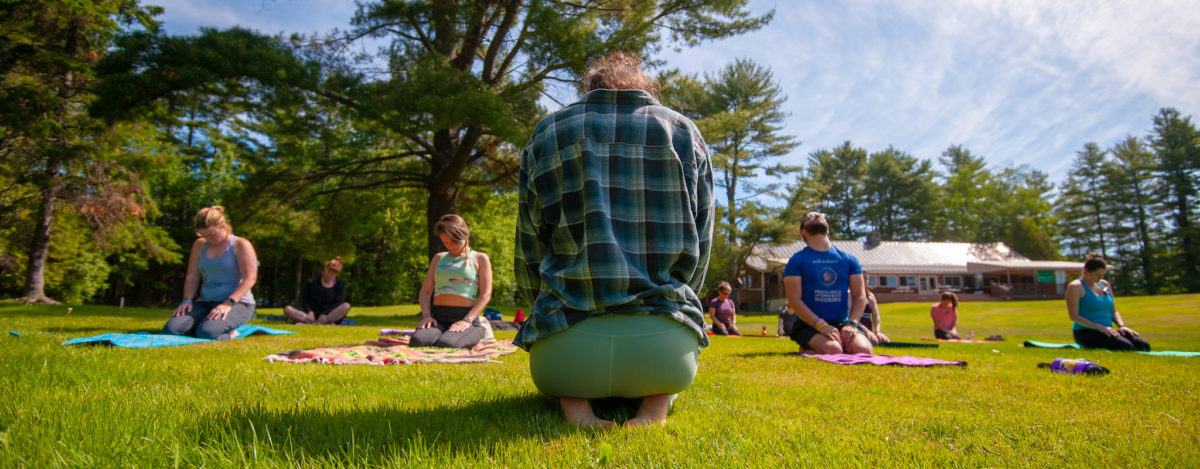Living with an Empowered Diabetes Mindset
If you’re reading this, I’d like you to consider for a second that, by far, the focus of education around managing type 1 diabetes revolves around the blood sugars. From the day we’re diagnosed, in addition to being handed that oh-so-mouth-watering cup of sugar-free jello, we (or our parents for the little type 1 diabetes (T1D) warriors out there) are taught the importance of keeping our blood sugar in range. Think back to when you were diagnosed. Did you learn what to do when you were high? And how about what to do when you were low? Of course! And these things are of course key. But they are also what I like to call the T1D Basic Survival Tools.
I call them the basic survival tools because in the last several years, my own personal experience and professional experience as a diabetic health coach has showed me that what it takes to fully thrive with T1D is so much more than knowing how much juice to drink and what your correction factor is.
Living with T1D is just as much mental as it is physical and feeling disempowered can show up in many different ways. You can be feeling frustrated with unexpected highs and lows, feel a sense of being different/handicapped, be afraid of lows, feel overwhelmed by the 24/7 attention required, feel a loss of freedom with food or your lifestyle, or be experiencing diabetes burnout from anger, stress, resentment, or helplessness.
At this year’s Beyond Type 1 x Connected in Motion Slipstream in Maine I shared my four practices to living with an empowered diabetes mindset and tips for how anyone can start implementing them today.
Here are four things to practice to have a more empowered diabetes mindset:
1 – Mindfulness
I was first introduced to the concept of mindfulness when I started practicing yoga. Mindfulness is a self- study which encourages you to examine your behaviors, habits and patterns. The teacher was always directing the class to focus on the present moment, while calmly acknowledging and accepting one’s feelings, thoughts and bodily sensations. I started to notice that when I took this practice off the mat into everyday life, I became more curious of my past mistakes (i.e. forgetting to pre-bolus or bring a backup site change with me out to dinner, eating high glycemic foods at breakfast, etc.) instead of judgmental. I was able to see how certain foods affect my blood sugars and the difference in how my mood or energy was in correlation with my workouts or stress levels. Then from that place of curiosity, I could see which actions best served me and how I could improve next time.
Tips to implement: Keep a log of your blood sugars and check continuous glucose monitor (CGM) reports daily/weekly to find patterns through reflection. When you’re more in touch with your body and learn what works best for you, you can stand more empowered coming from a more proactive state than reactive one.
2 – Gratitude
It’s easy to focus on what we don’t have in our life (and yes, a pancreas that does not fully function makes the list), but thinking about what we DO have allowed numerous physiological and physical benefits throughout our day. Gratitude studies show an increase in determination, attention, enthusiasm and energy, all while improving sleep, lowering anxiety and depression and making us more resilient against stress. I don’t know about you but I’d like a double shot of that!
Tips to implement: Every morning, write down in a journal or say out loud three things you are grateful for. Watch as your mood changes!
3 – Challenging yourself
There’s a quote I absolutely love and that is: “The way you do anything is the way you do everything.” Does anyone agree with me that diabetes is one heck of a challenge? What is most challenging in my opinion is that there are SO many unexpected factors that can come into play at any given time and throw you for a loop. I believe that if we purposefully challenge ourselves daily in new ways each month, week, or day, we build more resilience mentally for when those diabetes obstacles come up.
Tips to implement: On Sunday evening, choose a challenge that falls under the category of Mind, Body or Soul to work on that week. Some examples could be meditating five minutes each day, eating plant based, intermittent fasting, giving a compliment to three different strangers each day, or take a new workout class you’ve been nervous to try!
4 – Self love, acceptance and letting go
For many T1Ds, the label “diabetic” takes a toll on identity and how we view ourselves. I believe though that no description can make us feel inferior without our consent. Instead of working from the OUTSIDE-in, let’s focus on working from the INSIDE-out. Let’s choose to give a meaning to the word “diabetic” that empowers us. Let’s associate the word “diabetic” with strong, warrior, resilient and unique rather than associating it with broken, imperfect, weak, or different. Let’s choose to remember that others will see us as a person first, diabetic second as long as WE see ourselves in that light. And let’s accept that diabetes is a piece of us and we get to decide what that means.
Tips to implement: Give the love to yourself that you so easily give to others. Ask yourself what you need most and create an affirmation around it. For example, if you need to practice more self love, your affirmation might be, “I accept myself unconditionally.” If you need to practice more acceptance, your affirmation might be, “ I am enough.” If you need to practice letting go, it might be, “I let go of that which doesn’t serve me.”
Developing an empowered diabetes mindset comes from doing the work daily. Like anything else in life, the more you practice, the better you’ll become. It is our responsibility to go beyond those basic survival tools and proactively work on and support our mind as much as we do our bodies.





